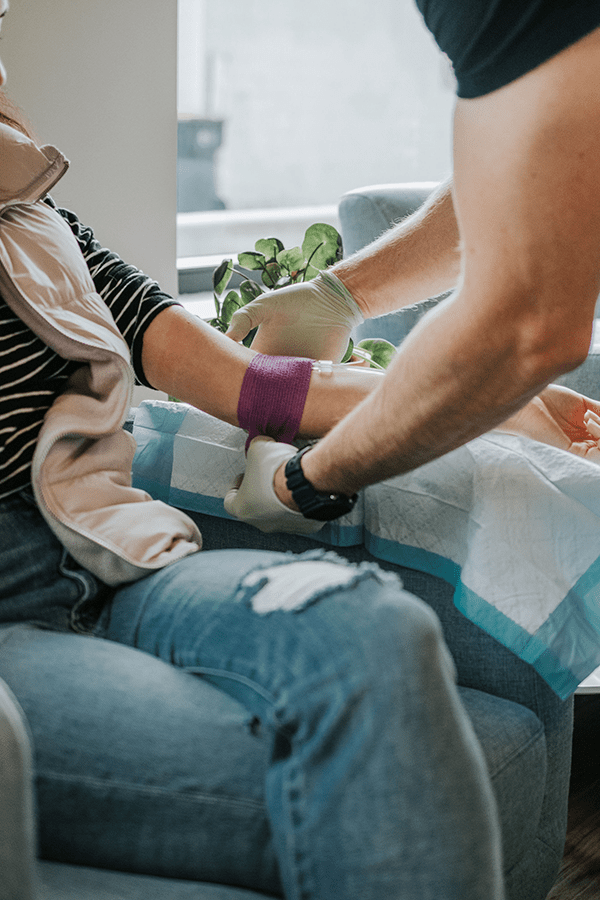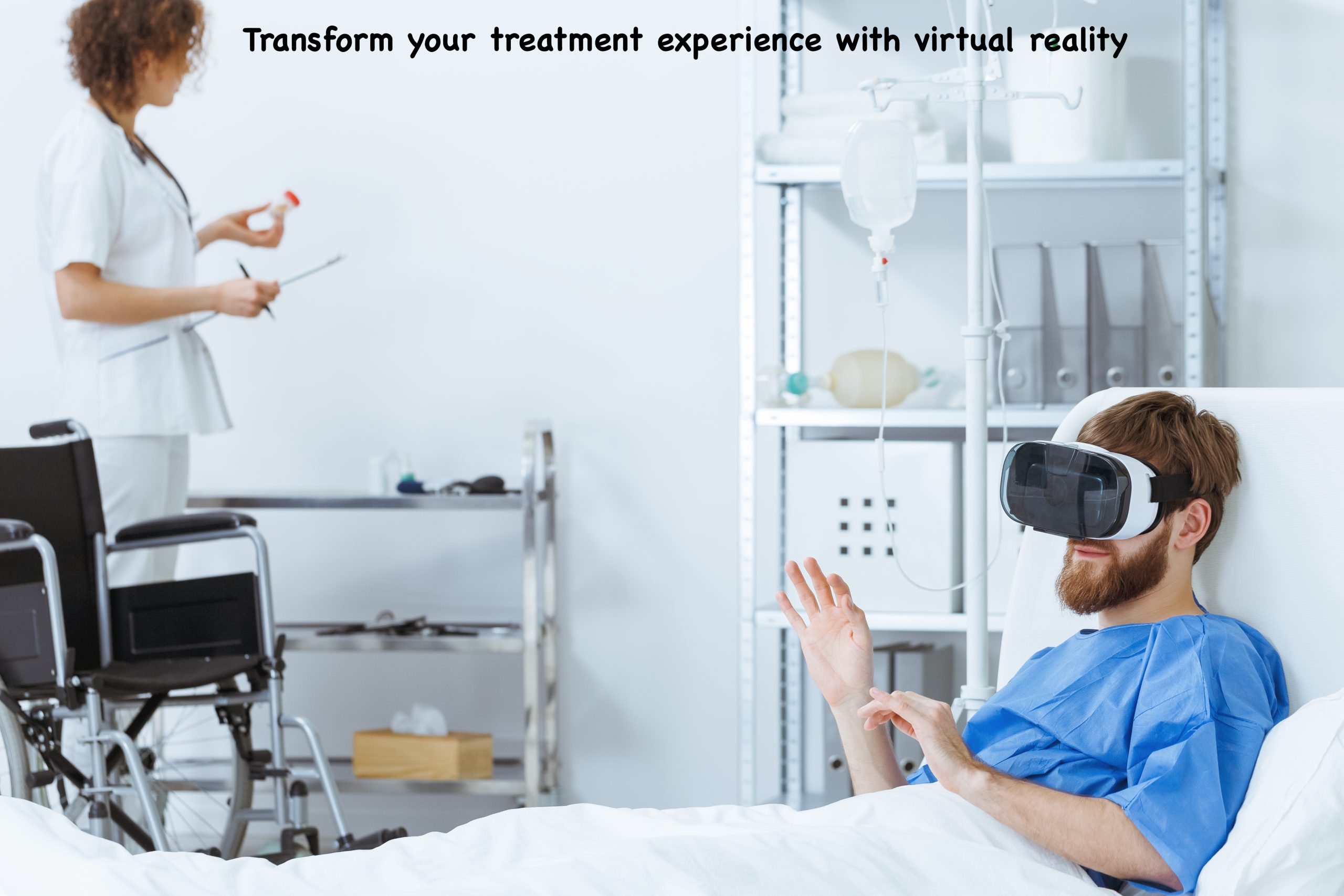Iowa Cancer Specialists Services
At Iowa Cancer Specialists we offer a variety of treatment services including Cancer, Non-Cancer Blood Disorders, Functional Health and other services.
What to Expect
Treating complex medical conditions such as cancer or non-cancer blood disorders is a team effort. Your disease will be treated by many doctors, including your oncologist or hematologist, radiologists, radiation oncologists (specialists in treating cancer with radiation), and surgeons, as well as the many nurses, technicians, nutritionists, pharmacists and others who will be with you as you go through diagnosis, treatment, and ongoing monitoring.
Our team works with Universities, City of Hope (COH) and Hospital organizations to organize patient care, treatment and share information among all doctors involved with your care. The role of Iowa Cancer Specialists is to captain your team. Working with you, we will determine the most effective treatments based on your diagnosis and any other health considerations. We will help you coordinate your care with other additional physicians, schedule treatment, and monitor your progress along the way.
Learn more about cancer treatment and treatment of non-cancer blood disorders.
Also, at ICS we believe that we all deserve a vibrant life and that we each have the potential to create that for ourselves. We know that the root cause of many of chronic diseases can be helped with lifestyle intervention. By that we mean changes in what we eat, how and how much we move, and our attitudes and outlook on life. Check out our lifestyle intervention services we offer such as Functional Health and Other Services to learn more.
What is Cancer?
We tend to think of cancer as a single, highly dangerous disease.
In truth, there are as many types of cancers as there are types of cells in the body. That’s because cancer is, at its most basic level, a condition where a particular type of cell—breast, prostate, colon, blood, even fat—begins to grow and replicate at a faster rate than it should.
How Cancer Begins
The abnormal cell growth that is typical of all formers of cancer is the result of damage to that cell’s DNA (the complex sequence of genetic instructions inside each cell that determine what type of cell it becomes, how fast it grows, and how often it replicates). Sometimes the body can repair this damage on its own. Sometimes, the damage is so severe that the cell simply dies. In cancer, somehow that damaged cell survives and continues making more damaged cells—which in turn make even more.
How Cancer Makes You Ill
As these abnormal cells multiply, they often begin to crowd out normal cells in other tissues, which makes it difficult for those other tissues to function the way they are supposed to, forming what we call a tumor (a swelling of the body caused by abnormal tissue growth).
In some forms of cancer, such as various forms of leukemia (cancer of the blood cells), the cancer cells don’t form a tumor. Instead, healthy blood cells are overwhelmed by an influx of cancerous blood cells, which cannot do the work of carrying oxygen and nutrients and removing waste from the rest of the body.
Learn More about Cancer
If you are looking for trustworthy and up-to-date information about various forms of cancer, we recommend the following resources:
City of Hope®(COH) – this national oncology network of hosptials and outptient care centers offers a blog, newsletter and thousands of pages of information on its website, designed to empower patients with the resources, tips and information needed to make informed decisions about their treatment journey and how to manage the side effects of the disease and its treatment.
National Cancer Institute at the National Institutes of Health – this federally funded research center offers a wealth of information, from defining basic terms to information about rare conditions to the latest research developments.
Mayo Clinic – This highly regarded hospital maintains a library of health information, including easy-to-understand information about cancer causes, prevention, symptoms and treatment options.
M.D. Anderson Cancer Center – The top-ranked cancer hospital in the United States, M.D. Anderson is an excellent source of information about clinical trials, research breakthroughs and the basics about virtually every form of cancer.
American Cancer Society – Find statistics on cancer diagnosis and survival rates in every state, learn about cancer prevention and detection, and find support programs for patients going through treatment.
Relevant Links
What are Blood Disorders?
While there are many types of cancer—leukemia, lymphoma, Hodgkin’s disease, multiple myelomas—that affect blood cells, not all blood disorders are caused by cancer. At Iowa Cancer Specialists, we are experts in treating virtually every medical condition that affects the production and function of red blood cells, white blood cells and platelets, including:
- Many types of anemia (low production of red blood cells), from iron-deficiency anemia to hemolytic anemia
- Hemophilia – inability of the blood to clot
- Thrombocytopenia – low platelet count
- Vitamin B12 deficiency, which affects the production of red blood cells
- Idiopathic Thrombocyopenic purpura (ITP) – excessive bruising and bleeding
- Leukopenia – low white blood cell count) and leukocytosis (high white blood cell count)
- Amyloidosis – the production of excess protein in the bone marrow
- Polycythemia Vera – the production of too many red blood cells
- Von Willebrand disease – an inherited condition that leads to excessive bruising and bleeding
- Essential thrombocythemia and thrombocytosis – production of too many platelets
- Factor V (Five) Leiden – an inherited condition that causes increased clotting
- Paroxysmal Nocturnal Hemoglobinuria (PNH) – an inherited condition where the body destroys red blood cells
- Protein C and Protein S deficiencies – inherited conditions that are associated with an increased risk of thrombosis (development of blood clots in the veins) and embolism (a blood clot that travels to the lungs)
Learn More about Non-Cancer Blood Disorders
It can be difficult to find reliable health information on the internet. As you begin to explore your symptoms and treatment options, we recommend the following resources:
American Society of Hematology – Learn the basics about blood disorders, including anemias, bleeding disorders, blood cancers, and clotting disorders.
National Hemophilia Foundation – Learn about the types of bleeding disorders and treatment options if you have been diagnosed with a bleeding disorder.
National Kidney Foundation – Anemia is frequently an early symptom of chronic kidney disease. Learn how you can manage your condition and what treatment options are available.
Mayo Clinic – Get basic information about causes, symptoms and treatments for a variety of non-cancer blood disorders from the Mayo Clinic’s trusted medical library.
Relevant Links
Types of Non-Cancer Blood Disorders
Causes of Non-Cancer Blood Disorders
Treating Non-Cancer Blood Disorders
Functional Health includes mindfulness in what we eat, how much we move, and in our outlook on life. It can be a powerful tool in the treatment of chronic disease.
When treating cancer, a Functional Health provider would agree that both radiation and other conventional approaches are required, but then would further explore what could be addressed in the practitioner-patient therapeutic partnership. How might patient’s underlying health issues be improved with functional health?
Science is now proving that we knew intuitively – that how we live, the quality of our relationships, the food we eat and how we use our bodies determines much more than our genes do. There are numerous strategies to combat or prevent cancer and other illnesses, including eating well, exercising regularly, getting sufficient sleep, and controlling stress levels.
Gayle uses Functional Health to help you achieve your health goals. Functional Health is a whole person-oriented approach that engages both the patient and practitioner in a therapeutic partnership.
Instead of only treating symptoms of disease, Functional Health addresses the root cause of illness. Genetic, environmental and lifestyle factors influence long term health and disease progression.
While most practitioners recognize the importance of these issues, they are not adequately trained to apply strategies such as nutrition, diet and exercise to prevent or treat chronic illness. Functional Health practitioners are specially trained in these areas.
Principles of Functional Health
- Patient-centered care
- Integrative, science-based approach to healthcare
- Individual, not protocol-driven, treatment plans
- Attention to internal factors: mind, body, and spirit
- Attention to external factors: physician, social, and environmental
- Integration with best medical practices
- Health promotion, to achieve your most vibrant life
Smoking Cessation Therapy
Personalized options to combat nicotine addiction
Cancer Survivorship Care Plans
- Summarizes your cancer treatment
- Identifies adverse side-effects that occur during treatment or develop years later
- Monitors for cancer recurrence
- Teaches you how to optimize your health and quality of life after cancer treatment
Virtual Reality during treatment
TRANSFORM your treatment experience with Virtual Reality (VR)
Virtual reality during your treatment can help with:
- Relaxation
- Combat Anxiety
- Relieve Stress
DigniCap Scalp Cooling System
The scalp cooling system is FDA cleared, safe, effective and clinically proven
- Minimize hair loss from chemo
Genomic Testing
Genomics refers to the molecular composition of a tumor. Advanced genomic testing may help find gene mutations that may be driving a cancer’s behavior.
Genetic Testing
Genetics refers to the genes a person is born with that are inherited from past generations. Genetic tests may help determine whether a person has inherited gene mutations that may increase the risk of cancer.
Outpatient Infusion Center
We provide access to safe and affordable infusion therapy. We will research any financial assistance that may apply, to help make your treatment as affordable as possible. Our outpatient infusion center treats the following conditions:
- Cancer Care
- Dehydration
- Immune Deficiencies
- Neurological Diseases
- Multiple Sclerosis
- Rheumatoid Arthritis
BEMER Therapy
Bio-Electromagnetic Energy Regulation. Scientific findings confirm that correctly functioning circulation is of crucial importance in ensuring a person’s well-being and physical performance. In all advanced organisms, blood circulation regulates the nourishment of cells with oxygen and nutrients, the removal of waste products and many other processes.
- Supports and strengthens the body’s own natural regulating mechanisms
- Targets the microcirculation
- Improves sleep, pain and quality of life
- Reduces cancer cell radioresistance by enhanced ROS formation and induced DNA damage



